Aleppo battle: ‘Forgotten’ civilians moved from Syria frontline
- Published
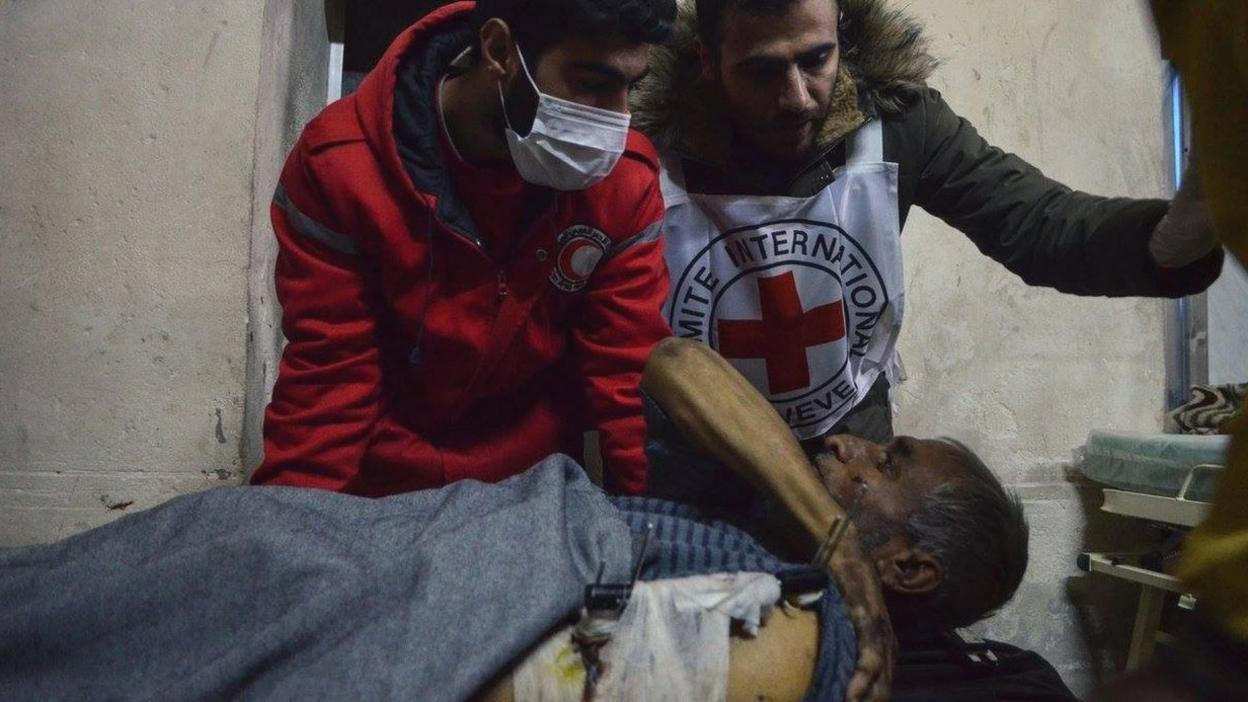
Of those rescued, 118 patients were taken to three hospitals in the government-controlled west
The Red Cross says it has evacuated 148 mostly disabled and elderly civilians found in a part of the Syrian city of Aleppo recently recaptured by the army.
They were trapped for days inside a former old people's home in what was a rebel-held part of the Old City because of heavy fighting nearby.
Many had injuries or conditions which left them unable to move.
Eleven others died before they could be reached, either caught in the crossfire or because of a shortage of medicine.
In the past three weeks, government forces have retaken about 75% of eastern Aleppo, which rebels had controlled for four years.
Hundreds of people have been killed and tens of thousands displaced by the battle.
More than 100,000 others may be under siege in areas still under rebel control, where food supplies are exhausted and there are no functioning hospitals.
The evacuation of the Dar al-Safaa old people's home was a joint operation by the Syrian Arab Red Crescent (SARC) and the International Committee of the Red Cross (ICRC).
It took place late on Wednesday night, hours after troops took full control of the Old City's Meshatyeh district.

The old people's home, the role of which expanded because of the conflict, had been accommodating patients with mental health needs or physical disabilities, according to an ICRC statement, external.
Three dozen other civilians, a number of them injured, had also sought refuge there.
"These patients and civilians had been trapped in the area for days because of heavy clashes nearby and as the front line kept drawing closer," said the ICRC's head of delegation in Syria, Marianne Gasser, who is currently in Aleppo.
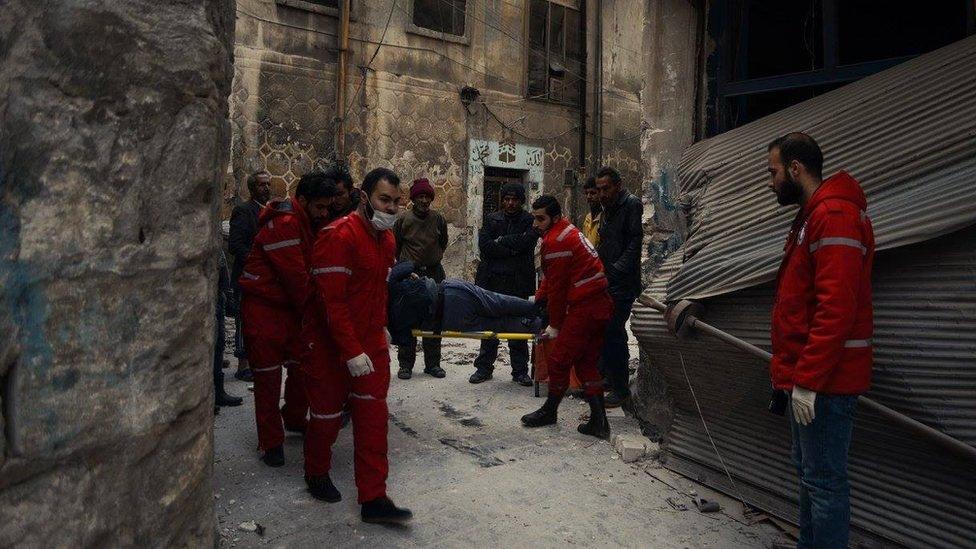
The evacuation took place hours after government forces took full control of the Old City
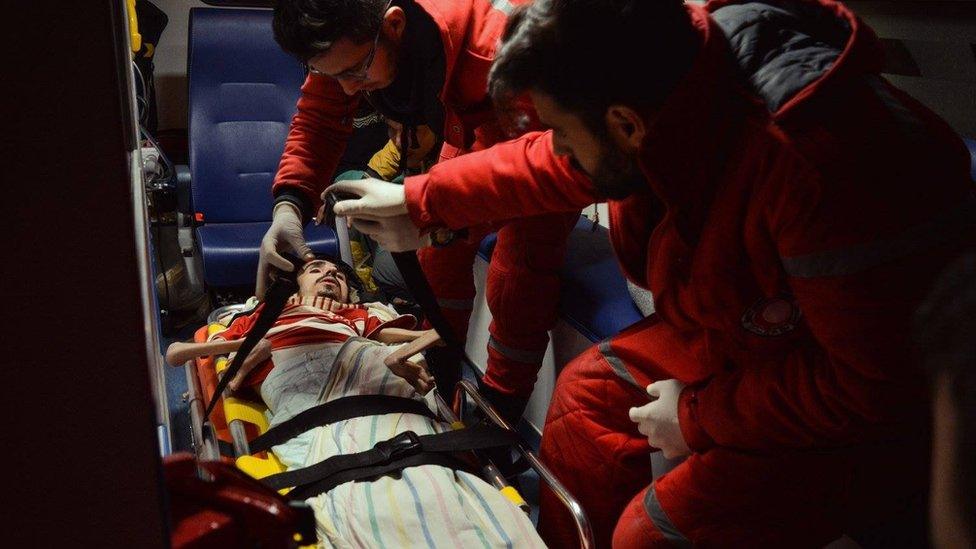
An ICRC spokesman said the evacuees had been "practically forgotten" during the fighting
"Many of them cannot move and need special attention and care. It must have been terrifying for them."
Of those rescued, 118 patients were taken to three hospitals in government-controlled western Aleppo, while 30 men, women and children were taken to shelters, also in the west of the city.
Six orphaned and very young children were among the evacuees.
Lyse Doucet reports from Tariq al-Bab as families who have fled the fighting in Aleppo gather together
An ICRC spokesman based in Damascus, Pawel Krzysiek, told the BBC that the patients had been "practically forgotten" and that tragically for some the evacuation operation had come too late.
The ICRC is ready to act as a neutral intermediary between all sides of the conflict and to assist civilians inside eastern Aleppo, where it said the humanitarian situation was "catastrophic".
Russian Foreign Minister Sergei Lavrov is due to meet the US Secretary of State, John Kerry, on the sidelines of a summit in Germany later to discuss a deal that would see the evacuation of civilians and rebel fighters.
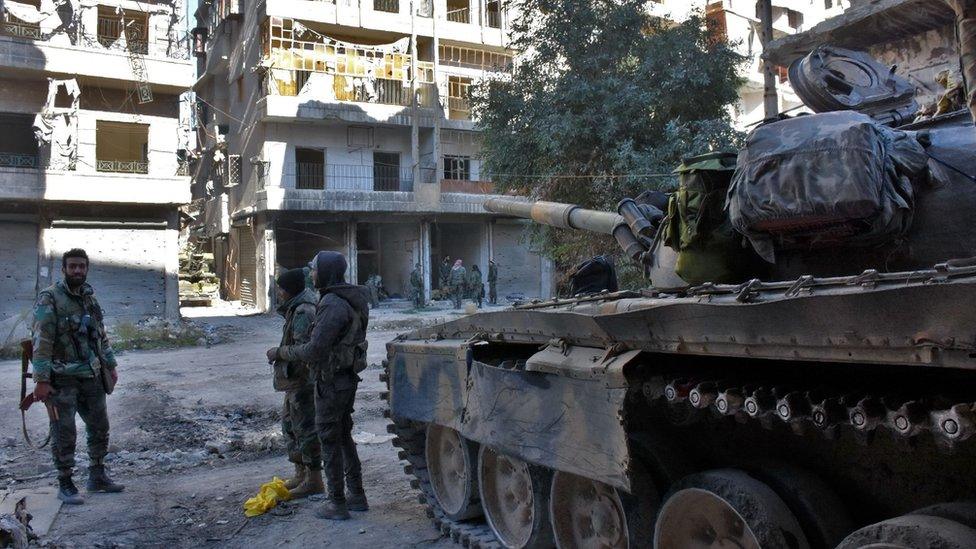
Troops and allied militiamen have so far rejected calls for a ceasefire
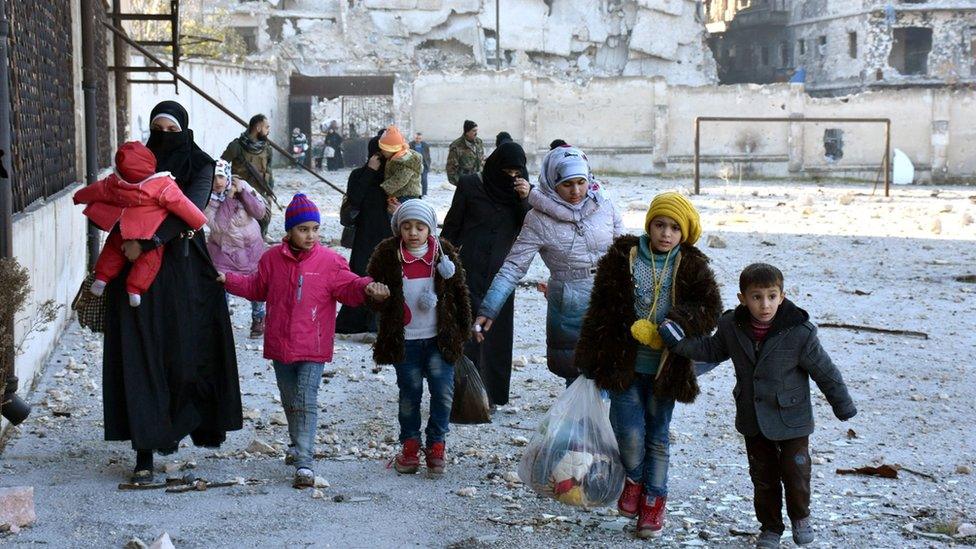
Tens of thousands of people have fled eastern Aleppo in the past two weeks
But the chairman of the UN's humanitarian taskforce for Syria, Jan Egeland, told reporters in Geneva that he believed the two powers - which back opposing sides in the civil war - were still "poles apart" on agreeing the terms.
Mr Egeland said the Red Cross operation was "heroic" but that evacuations should not "happen like that". He instead called for the establishment of humanitarian corridors, which would require at least a pause in the fighting.
Russia, he warned, was ready to talk about an evacuation, but not to discuss a ceasefire.
Wissam: There is a lot of fear
Aleppo was once Syria's largest city and its commercial and industrial hub before the uprising against President Bashar al-Assad began in 2011.
It has been divided in roughly two since mid-2012. But in the past year, Syrian troops have broken the deadlock with the help of Iranian-backed militias and Russian air strikes, reinstating a siege in early September.